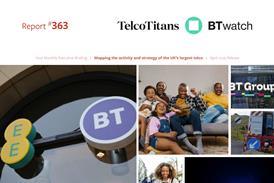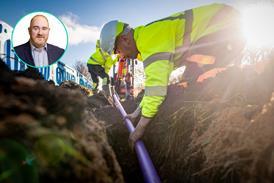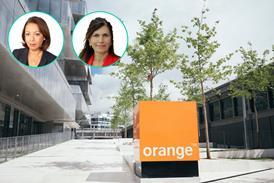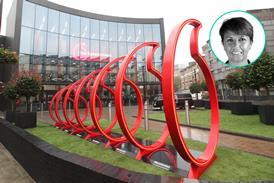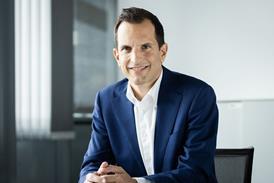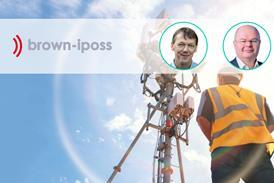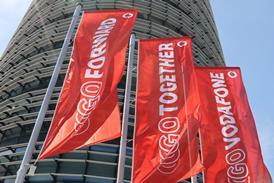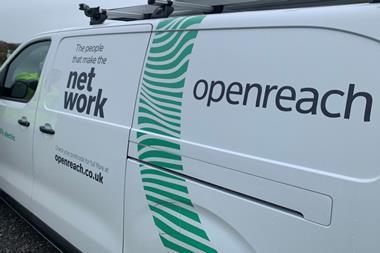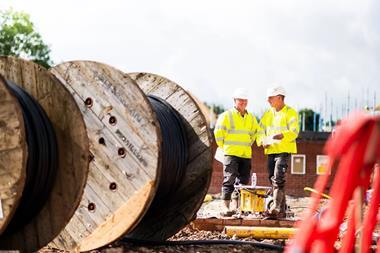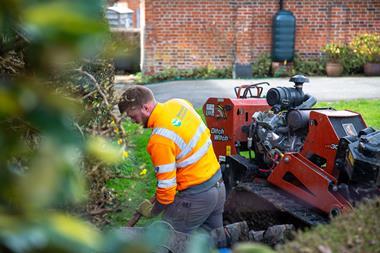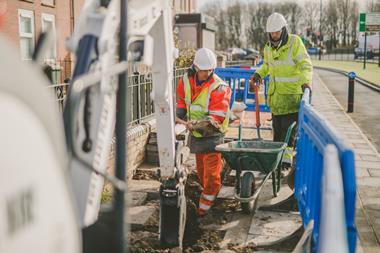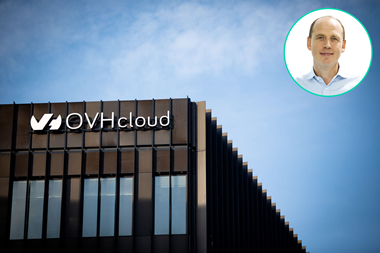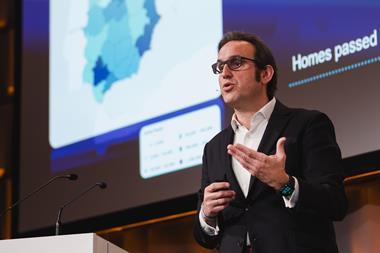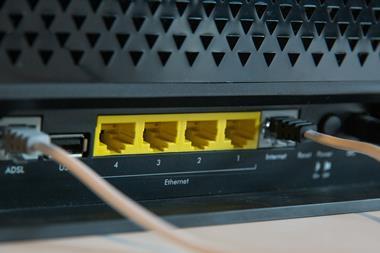- Far-ranging interview with Dominic Kearns, CEO and co-founder of super-competitive altnet Fibrus.
- Proving that fibre challengers can not only compete but also best national network and ISP majors.
- Places amongst highest-performing UK fibre players in terms of key KPIs, including take-up and leadership within its build footprint.
- Now shooting for next level by going off-net, taking fight onto rivals’ turf, commencing in Belfast and leveraging standout hyperlocal retail machine.
- Fibrus has parked new territory build beyond Cumbria until markets settle, but retains one million home passed target and confirmed in running for Project Gigabit Northern Ireland to fill blankspots.
- NI already a case study in UK and European fibre, with 90%-plus reach, 40% penetration, tri-cumbency, and national players like Openreach, BT, Sky and TalkTalk humbled.
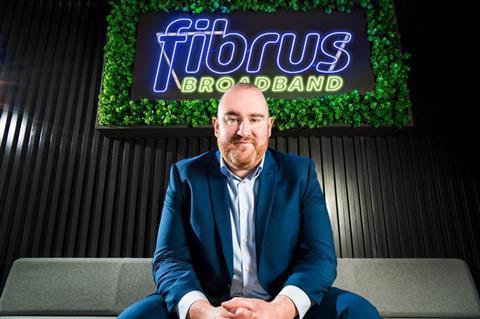
In this article
1. Rise of the growth machine — customer-friendlier, hyperlocal2. Going off-net: flexing retail ISP muscles during 2024 build hiatus (taking on BT and VM O2 on their own turf in three-way NI market)
3. Local hero — retail and residential to the Fibrus core
4. Fibre build: letting the market shake itself out
5. Projects Stratum and Gigabit feed the regional and rural moats
6. The LinkedIn message that started it all
Belfast-based fibre altnet Fibrus has revealed plans for a major, “aggressive” expansion of its retail business in 2024, with its first move into off-network broadband services.
The new addition to its strategy, Chief Executive Dominic Kearns told TelcoTitans, comes in recognition of the more constrained funding climate faced by the UK’s fibre providers and beyond.
As well as the irresistible temptation to bring more of Northern Ireland into its addressable market and further leverage a brand and retail presence that is essentially region-wide already, the broadband provider relishes the challenge of besting national network and ISP players on fresh turf.
This market expansion leverages what Fibrus considers to be one of its super-strengths, a demonstrably effective hyperlocal, regional-centric retail ISP operation. This has been ramping up since 2020 and is fast approaching 80,000 subscribers, already achieving significant 20%–30%-plus fibre take-up, and providing demonstrable competitive strength in the face of major national ISP brands.
The recent macroeconomic backdrop has prompted many fibre peers across the UK to pivot away from a focus on new infrastructure investment towards value creation, including Openreach, which has moved to rein back its own rollout.
Fibrus is also indirectly making a statement of intent that it will aggressively fight fire with fire, including going head-to-head with any rival that dares to contemplate overbuilding a third fibre network in its backyard — returning the spotlight to behaviour that other altnet and investor stakeholders have also questioned and decried as irrational.
Kearns confirmed that Fibrus — which builds and sells high-speed broadband services in Cumbria as well as Northern Ireland — plans soon to launch retail services utilising Openreach’s network, starting in its home city. “We’ve done it at a network level, and now we really want to go after the big guys at a retail level too”, he said.
“ Whilst the money market is expensive, what we’re going to do is take our strength at a retail level and start to push our ISP onto other networks, taking on BT and Virgin on their home ground effectively. An obsession with growth is ingrained in the Fibrus culture, and we need to get after it. ”
Kearns.
Rise of the growth machine — customer-friendlier, hyperlocal
Kearns guided that Fibrus could have a sizeable pot of user growth to dip into through its off-net expansion — saying the business anticipates the possibility of achieving a similar “trajectory” on signups to its existing on-net proposition.
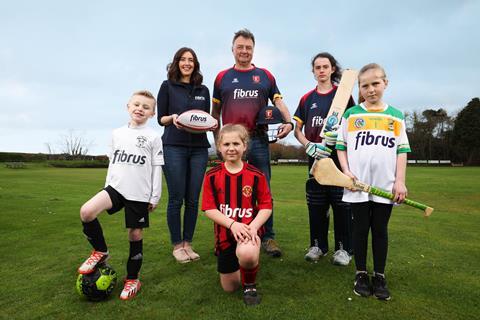
Fuelling this opportunity is that Northern Ireland has a much deeper base of high-speed broadband connectivity compared to other regions of the UK, with 91% availability for residential full-fibre and 98% for ‘superfast’ coverage, according to regulator Ofcom’s December 2023 Connected Nations report.
There is also plenty of remaining ‘greenfield’ signup potential within this full-fibre footprint, with penetration growing rapidly (+14pp year-on-year) but still at only 39%.
| Region | Premises covered | Change (y-on-y) |
|---|---|---|
| Source: Ofcom. | ||
|
UK total |
57% |
+15pp |
|
England |
56% |
+15pp |
|
Scotland |
53% |
+12pp |
|
Wales |
55% |
+15pp |
|
Northern Ireland |
91% |
+6pp |
|
Urban |
95% |
+1pp |
|
Rural |
82% |
+17pp |
Kearns is particularly confident in Fibrus’ ability to take share through the more intimate, face-to-face commercial tactics that are typically employed by hyperlocal providers when battling bigger, more volume-oriented players.
Having only begun marketing its services in 2020, Kearns said the business is approaching 80,000 customers, as well as achieving widespread brand recognition in target markets — sitting only second to BT when Northern Irish consumers are asked, without prompting, to identify regionally available broadband providers.
“ That’s huge for us, especially as you have players like Sky, Vodafone, and TalkTalk that have been in the market for years — but it’s not a surprise: we’re invested heavily in making Fibrus a household name. ”
Kearns.
Going off-net: flexing retail ISP muscles during 2024 build hiatus
Many broadband infra providers have tightened the reins on rollout as debt financing and engineering resource has become more costly — and Kearns confirmed that Fibrus has put plans for new ‘territories’ temporarily on pause.
The move off-net forms part of a ‘play to our strengths’ strategy review at Fibrus, with the current emphasis on driving commercial growth whilst completing existing footprint expansion.
This leverages a go-to-market “machine”, where local rollouts are followed up by community-focused sponsorships and door-to-door marketing, that has been “very successful for us, and now we’re going to try it off-net as well”, said Kearns.
While heavyweight, UK-wide rivals such as BT and Virgin Media O2 have a similar line-up of products, Fibrus “can provide both a cheaper and better service” in the areas it serves, he added.
“ BT and Virgin at a retail level operate at 50,000 feet, and that’s definitely something we find is to our advantage — that we’re on the ground and we can easily explain to consumers why they should be coming off an old copper service that they’re paying over the odds for, onto a full-fibre service that basically future-proofs their home for years to come.
We won’t approach off-net any differently: we’ll get our proposition out there; we’ll get our boots on the ground; and our marketing effort will be the same as in our own network areas. ”Kearns.
Fibrus also considers itself ideally placed in terms of enabling infrastructure.
“ We have backhaul in every part of Northern Ireland, so we are outside the doors of all the local BT exchanges. We have just started the process of kitting out the Belfast exchanges, so that will be our first area that we’re launching.
Our plan is to be really aggressive on marketing; the same way we are on our own network. ”Kearns.
Local hero — retail and residential to the Fibrus core
Fibrus has at heart always considered itself a retail-powered business, unlike some other integrated UK fibre challengers that are NetCos first and foremost and struggle to grasp the importance and difficulty of being a consumer-focused ISP ServCo at scale.
“ From day one, that was our focus — ‘How can we build a brand?’. ”
Kearns.
This has proved fortuitous, too, with Kearns declaring the immediate full-fibre wholesale only opportunity to have been “killed off” by 2023’s regulatory greenlighting of Openreach’s highly contentious Equinox 2 pricing strategy update.
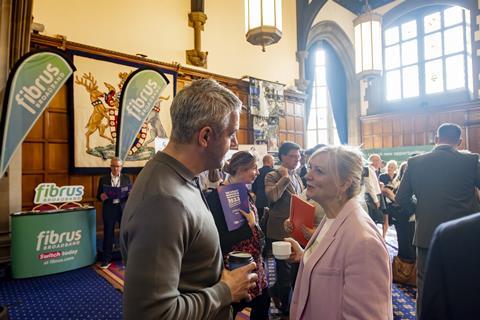
This homage to retail is built on hard yards, with Kearns considering the altnet to have developed a hyperlocal and regional super-strength that gives it an edge over any rival, especially anonymous mass market brands like BT and VM O2. This is evidenced by boots on the streets, whether for customer development, field delivery, customer service (Wi-Fi Busters), or community immersion (Fibre Champions).
“ Our sales and marketing headcount at this stage is probably as big as our build division headcount. That’s how important we see it. ”
Kearns.
Fibrus is also on trend in prioritising subscribers’ in-home experience, notably by allying with Amazon and its premium eero connectivity technology, as well as being very open to prospective value-added service partnerships such as content or security.
“ Working alongside Amazon is a huge thing for any brand that’s trying to develop themselves, because they’re a trusted brand and practically everybody in the market is using some level of Amazon product or service at this stage. Also, like most things Amazon do, their tech is pretty on-point. We’ve been through different iterations of routers before, but the eero by far has been the most successful for us. And we hope to build on that [Amazon] relationship — we hope to build on that platform and really drive our brand alongside theirs.
We’re always looking at ways to add value to the consumer within the home, but the technology is what it is, and it is about best deployment of that technology. ”Kearns.
Fibre build: letting the market shake itself out
In December 2023, Fibrus was reported by ISPreview to have pulled out of the running for a contract, offered under the UK government’s Project Gigabit programme, to deliver broadband connectivity in the North East of England.
“ That was a very marginal call for us, but it was absolutely the right decision for us given capital market conditions. We know our strengths, and in many cases, your best strategic decisions are about stuff that you don’t do rather than stuff you do.
We have time now to look at some of the other strengths within the business, and one of these is how we’re getting on at a retail level. There’s no reason why we wouldn’t try and create value, given that success on the retail front, in areas where we don’t have our own network. ”Kearns.
Kearns confirmed that Fibrus is for the immediate future now focused on (and fully funded for) committed build and delivery growth in its core footprint of Cumbria and Northern Ireland.
Kearns also made clear that, once financial constraints loosen and “money becomes a bit cheaper”, Fibrus still intends to achieve a milestone of one million premises passed. This will re-confirm Fibrus’ place within a rarefied group of larger UK altnets targeting seven-figure footprints, where it also already sits in terms of real-world progress to date and with committed funding in the £1bn-plus proximity.
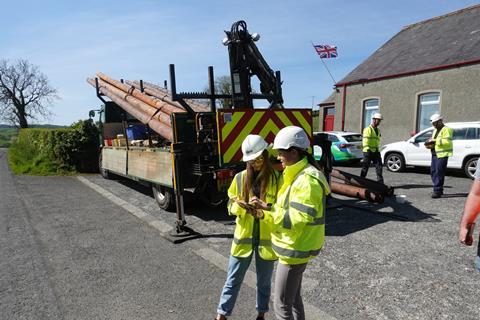
Kearns guided that he sees a more investment-friendly environment as likely to re-emerge in or around 2025, enabling Fibrus to re-accelerate buildout. He also anticipates related market consolidation.
“ Over the next 18 months, there will be a realignment of the altnets in the market and then money will hopefully start to appear again for more greenfield build. We’ll focus the organisation on what we have at the minute, but then it will be back again building our network for the homes that need it.
Someone has to build those networks — particularly in the rural areas that we have outlined. Northern Ireland is done, but the north of England and Scotland all has to be done still. Fibrus very much has our eye on that. That opportunity isn’t going away. ”Kearns.
Projects Stratum and Gigabit feed the regional and rural moats
Despite the North East Project Gigabit deal withdrawal, a good portion of the Fibrus buildout plan is still being delivered via government-funded rollout contracts. In 2020, the FibreCo grabbed the headlines by beating Openreach to become the delivery partner for Northern Ireland’s Project Stratum, gaining a £197m contract to deliver gigabit-capable broadband connections to 85,000 hard-to-reach homes and businesses in the region by March 2025 (BTwatch, #316). According to Ofcom, more than 70,000 of the 85,000 these premises had been passed as of October 2023.Then, in November 2022, it secured a £108.5m Project Gigabit mandate to deliver fibre to 59,000 premises in rural Cumbria in England. The altnet is seeing notably strong take-up in the region, perhaps unsurprising considering the huge step up with fibre services, but also having to work harder due to remoteness and poor state of local enabling infrastructure.
A further Project Gigabit Northern Ireland deal, also targeting around 59,000 homes and businesses, is being prepared by government agency Building Digital UK and Northern Ireland’s Department for the Economy, and could also have nine-figure value. Focused on premises that fall outside of the scope of both Project Stratum and FibreCos’ commercial deployment plans, this contract is scheduled to be awarded by autumn 2024. Kearns confirmed that Fibrus “will bid on that contract” and “stands ready if we are successful” to deliver the work, given its rapid delivery on Project Stratum.
The LinkedIn message that started it all
Fibrus grew out of Kearns’ other telco business, Belfast-based ICT player b4b Telecoms, and was co-founded in 2018 by the exec alongside Irish telecoms industry veteran Conal Henry, now the altnet’s Chair. The duo teamed up after Henry stepped down as CEO of wholesale network operator enet in 2018. “As soon as I saw that, I was straight on to LinkedIn to message him to meet up”, said Kearns.The startup’s formative mission, he said, was to take the fight to BT Group’s business in Northern Ireland, which had a “real grip” on the broadband market, particularly in retail, and was overtrading versus its operations in the rest of the UK. “We decided we were going to try and do something about that — that was the opportunity”, said Kearns.

While acknowledging his and Henry’s entrepreneurial pedigree (Ryanair is another backdrop and role model), Kearns noted the “distinctiveness” of the Northern Irish market as a reason for Infracapital’s interest in the business, highlighting how the region has limited room for rivals to “encroach on you” while also tending to be overlooked by players focused on Great Britain. “We identified very quickly that if we had the plan, we had the people, and we had the resources, we would fairly quickly command the market”, he said. “I suppose, then, that the biggest risk for us was execution and ‘could we do it quick enough?’ — thankfully, those three elements came into action and we delivered very quickly”.
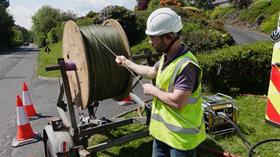
Topics
- Amazon
- BDUK (Project Gigabit)
- BT Group
- Conal Henry
- Dominic Kearns
- Fibre (FTTC/FTTP)
- Fibre Challengers
- Fibrus
- Fixed broadband (FTTx)
- Gigaclear
- Hyperoptic
- Industry Voice
- Infracapital
- Infrawatch
- Interview
- Network & Infrastructure
- nexfibre
- Northern Ireland
- Openreach
- TelcoTitans Industry Content
- UK Fibre Challengers
- United Kingdom (UK)
- Virgin Media O2 (VM O2)





